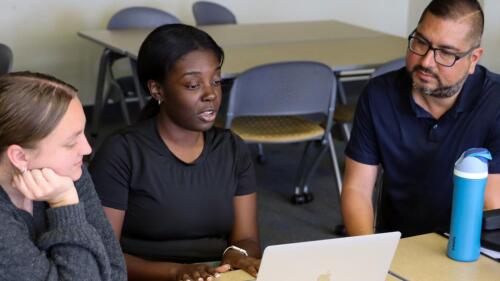Starting your journey as a special education teacher is both exciting and challenging. You are stepping into a role that requires patience, creativity, and a deep commitment to supporting students with diverse learning needs and continuous professional learning. Unlike general education, special education requires individualized instruction, collaboration with various professionals, and the ability to adapt to students’ ever-changing needs. Your work will be crucial in shaping students’ academic success, social development, and overall well-being.
Tips for Thriving in Your First Years as an Educator
To help you navigate your first years successfully, here are some essential tips and strategies to set you up for success and help create a meaningful and inclusive learning environment for your students.
1. Understand Your Students
Every student in special education is unique. Take time to read their Individualized Education Programs (IEPs) thoroughly. Understand their strengths, challenges, and the accommodations they need. Build relationships with your students to learn more about their learning styles and preferences. Familiarize yourself with the Multi-Tiered System of Supports (MTSS) and Math Interventions to personalize your student’s learning.
2. Develop Strong Communication Skills
Collaboration is key in special education. You will work closely with general education teachers, therapists, paraprofessionals, and parents. Regularly communicate with families about their child’s progress and be open to their insights. Clear and compassionate communication fosters trust and teamwork.
3. Embrace Flexibility and Adaptability
Lesson plans may not always go as expected, and that’s okay. Be prepared to adjust based on students’ needs, behaviors, or energy levels. Keep a toolkit of alternative teaching strategies and materials you can use when needed.
4. Create an Inclusive and Structured Environment
Students with special needs often thrive in structured settings. Establish clear routines, expectations, and visual supports to help them feel secure. Foster a positive classroom culture that encourages inclusivity, respect, and independence.
5. Advocate for Your Students
You are one of your students’ biggest advocates. Ensure that they receive the services and accommodations they need to succeed. Speak up in IEP meetings, collaborate with administration, and educate others about special education best practices.
6. Keep Learning and Growing
Special education is an ever-evolving field. Attend professional development workshops, seek mentorship from experienced educators, and stay informed about new research and teaching strategies. Being a lifelong learner will make you a more effective teacher.
Final Thoughts
Your role as a special education teacher is incredibly impactful. While challenges will arise, remember that your work makes a difference in the lives of your students and their families. Embrace the journey with an open heart, and know that with time and experience, you will continue to grow into an amazing educator.
Ready to learn more? Register here!
The Office of Professional Development & Outreach at Kent State University
The future of education is built every day by educators like you.
At the Office of Professional Development and Outreach, we create high-quality professional development opportunities to help the educational community increase the knowledge and skills needed to meet the challenges of today’s students.
Our online workshops present an incredible opportunity for learners to continually enhance their skills, particularly for educators to earn credits while adapting to the evolving landscape of education. Investing in your professional development improves your teaching practice and enriches your student’s educational experience.
Learn more at http://www.kent.edu/creditworkshops.
100% Online Degrees through the College of Education, Health and Human Services
Kent State University’s College of Education, Health and Human Services (EHHS) offers a portfolio of 100% online graduate degrees. With the working professional in mind, the college is dedicated to providing quality education on an online platform.
Degrees include:
- Online Master of Education in Curriculum & Instruction
- Online Master of Education in Educational Psychology
- Online Master of Education in Educational Technology
- Online Master of Education in Research, Measurement & Statistics
- Online Master of Education in Special Education
- Online Master of Education in Cultural Foundations
- Online Doctor of Education in Interprofessional Leadership
Learn more about all of the 100% online EHHS degrees.
Kent State University Online Degrees
Kent State University pioneered online and distance education, offering its first online program over 20 years ago. Kent State now offers more than 90 online degree and online certificate programs, unmatched by most peer universities, with new online programs and online degrees continually added.
Earn your degree anytime, anywhere, with Kent State University’s online graduate degrees, online undergraduate degrees, and online certificate programs. Kent State Online combines online programs and assistance for students, faculty, the community, and global audiences.
For more information on Kent State’s Online Degrees, visit https://onlinedegrees.kent.edu.








